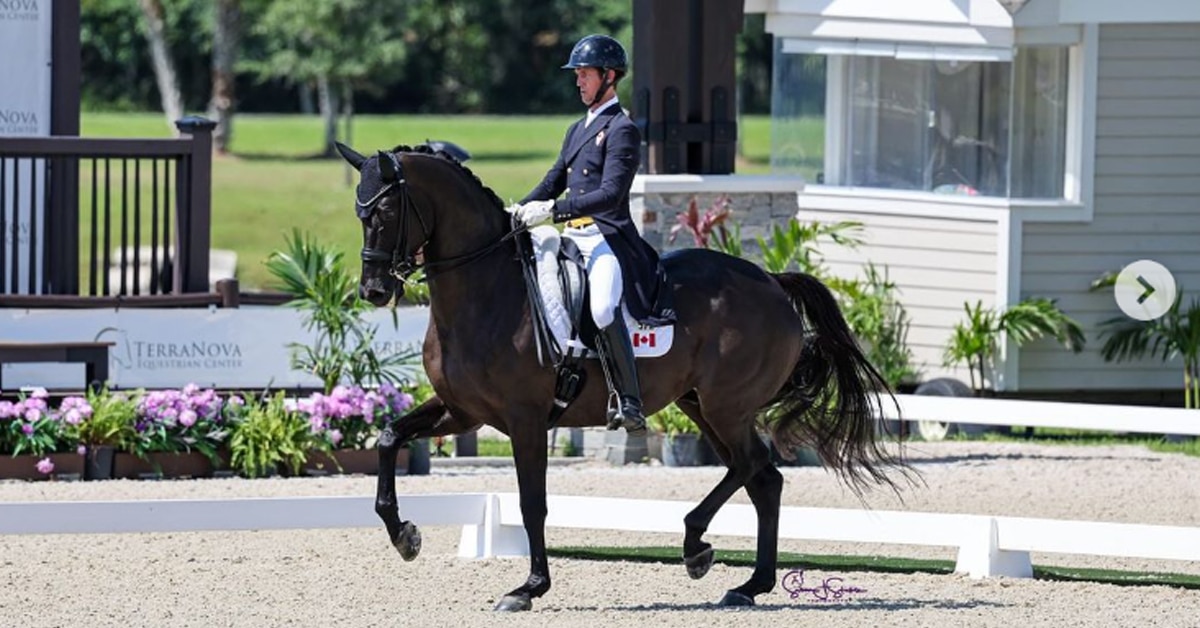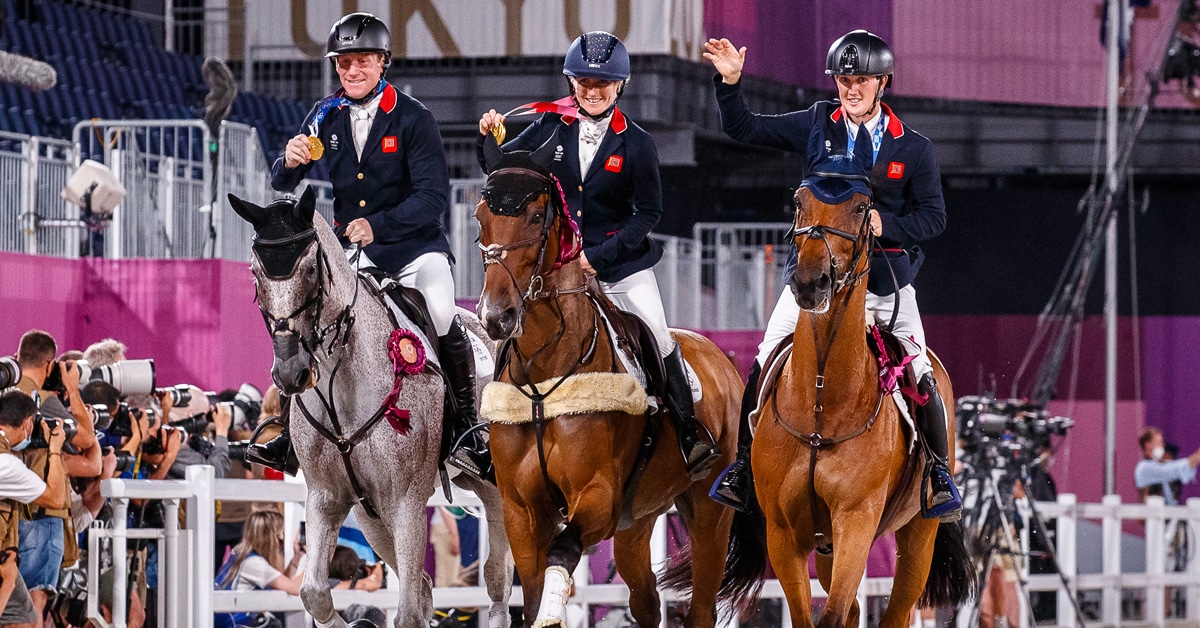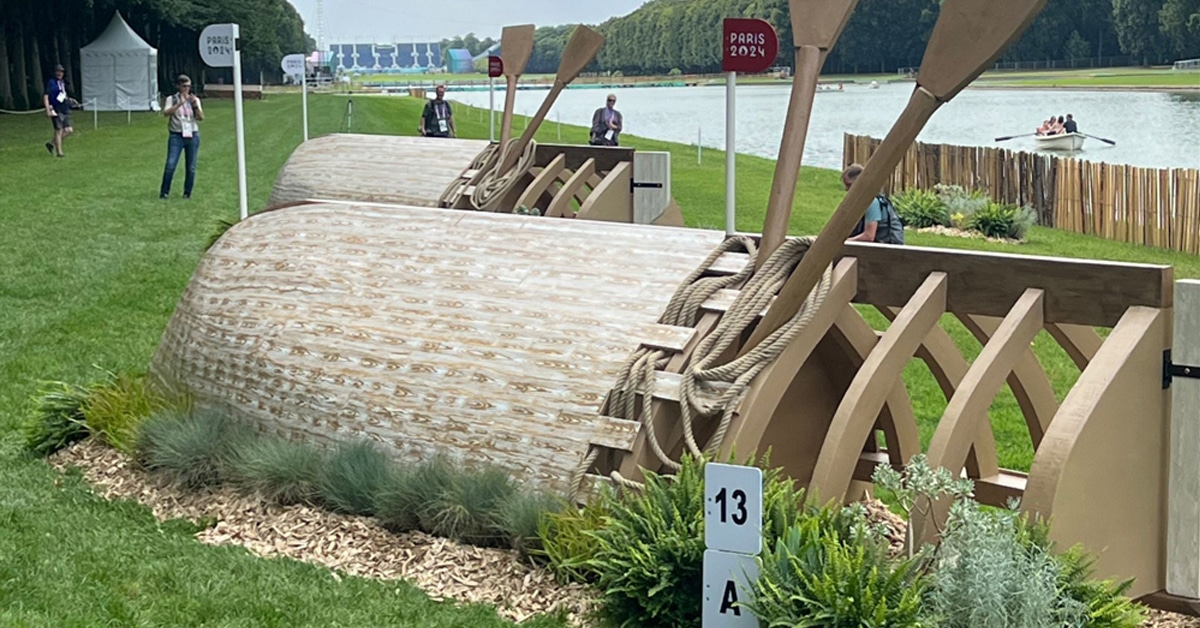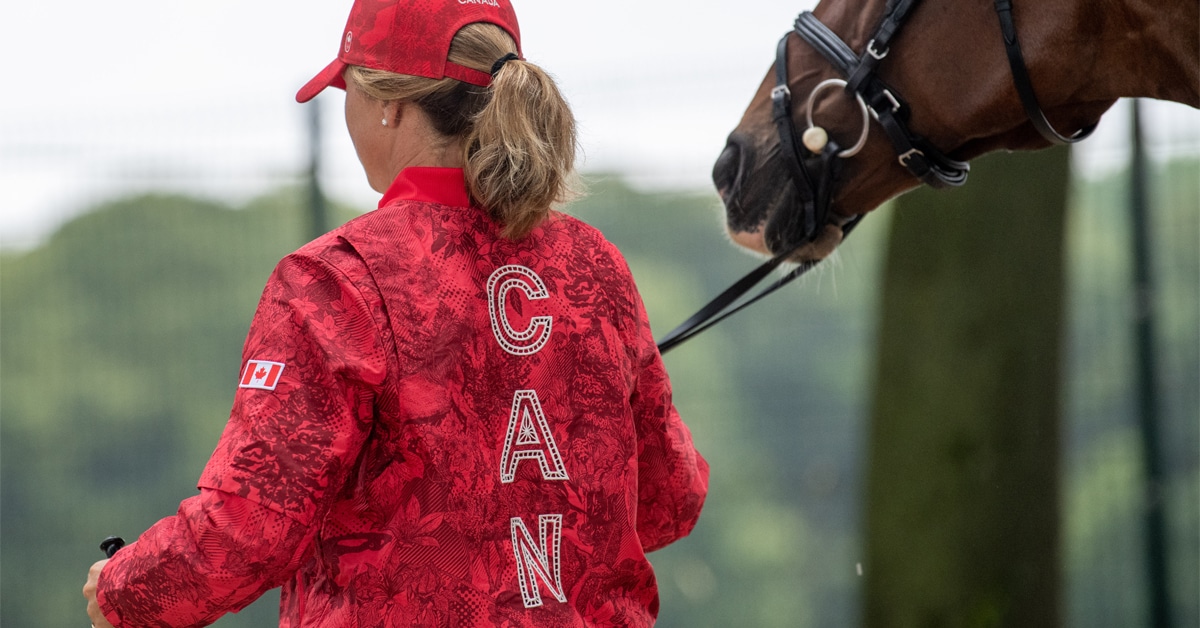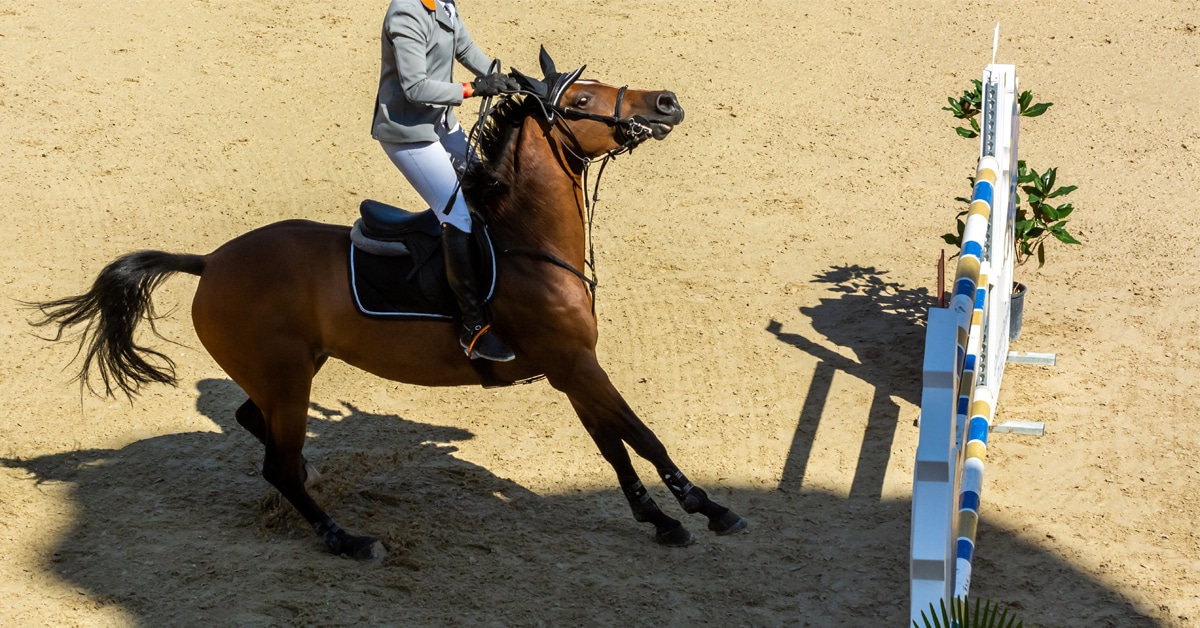The International Jumping Riders Club (IJRC) will make a further attempt during the annual FEI General Assembly in Mexico City, Nov. 18-21, to revise jumping’s controversial new “elimination” rule.
The rule in question, Article 241.1, could come into effect on January 1 and empowers a judge to eliminate a horse or rider that appears to be in difficulty in the ring. The elimination is unappealable, yet its split-second subjectivity could have career-changing outcomes for riders and national teams, especially at next year’s at Olympic Games in Paris where there is no drop score. The FEI has so far rejected IJRC proposals to allow one or more Olympic medalists or top riders to advise the ground jury on this matter during the Olympic Games and other major events.
IJRC members expressed strong concerns during their own General Assembly in Geneva last December and subsequently developed revisions suggested by 2016 Olympic champion Nick Skelton, who cited the similar advisory role in motor sports.
The IJRC initially hoped the advisory role might be adopted in time for the 2023 European championships. That was not achievable, and the IJRC has now taken the matter through the FEI rule-changing consultation process for 2024 – to be finalised in Mexico City on November 21.
Currently, the FEI is recommending national federations support the original premise. It says the same rule must apply at all levels of competition; that from a legal perspective it is difficult to give a mandate to someone who is not an official; and that the same principle/provision must apply across disciplines.
The rule is understood to result from the growing pressure of “social licence to operate” and the potential pushback from the non-equestrian public when negative images circulate on social media.
However, the scenarios that should be eliminated remain undefined in Article 241.4 and the IJRC seeks more clarity. For example, an awkward-looking jumping effort could result from over-facing a horse or rider of limited ability, but equally, it could be an isolated incident that is part of the normal learning curve of a young horse in expert hands.
There has been some compromise over the wording of the last part of Article 241.1. The club appreciates that the FEI has agreed the phrase stating elimination would occur when “it would be contrary to the principles of horse welfare” will be replaced with “this would be in the best interest of the wellbeing and/or safety of the horse and/or athlete.”
The IJRC proposed this amendment because the original wording had the potential to mislead the general public about why the rider and horse were being stopped during their round, and thereby unfairly subject the rider to criticism on social media.
In all sport, the decision of a Ground Jury (judges) is final, but the principle of utilising other experienced personnel as part of the decision-making process on the field of play at major FEI events is not unprecedented. Since 2011, FEI dressage has utilised a Judges Supervisory Panel, with powers to “correct” marks given by the Ground Jury where, for example, a clear mistake during the test was missed, or one judge’s marks are notably out of kilter with colleagues’ marks. The dressage JSP is mandatory at Olympic Games, world and continental championships and World Cup finals, and the JSP may attend other lower level shows at its discretion. Notably, the JSP is drawn from trainers who are not judges, as well as FEI accredited judges.
The role suggested by the IJRC does not have the formalised structure of the dressage JSP, and is only intended as advisory, not to over-rule. For the avoidance of doubt, the IJRC supports the elimination of a horse in instances of blood.
More from News:
